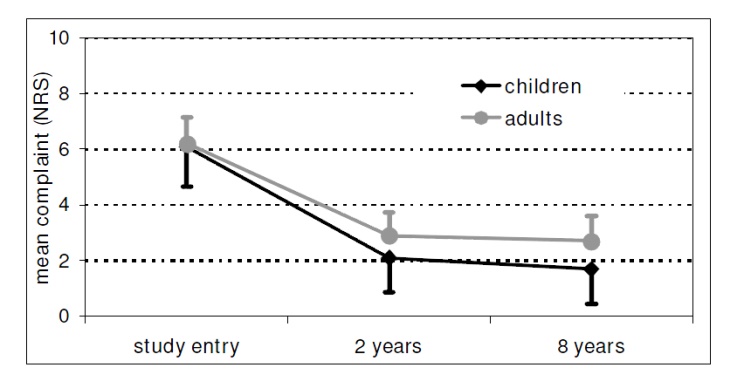Clinical effectiveness
The effectiveness of homeopathy and anthroposophic medicine
Studies comparing the effectiveness of homeopathy or anthroposophic medicine and conventional medicine in real life clinical situations have shown that homeopathy and anthroposophic medicine can produce results as good as or better than conventional medicine.
Disease severity and quality of life demonstrated marked and sustained improvements following homeopathic treatment in patients who had been chronically sick for a long time before study entry and in most cases treated conventionally before. The results persisted for as long as 8 years.
In the Tuscany region of Italy, after 20 years of clinical experience of providing homeopathy integrated into the public healthcare system, data collected from 5,877 patients shows that 88.8% of patients experienced health improvements, with a significant improvement seen in 68.1%.
A major study in France, the EPI-3 study, – followed 8,559 patients attending GP practices for a year and looked specifically at the ‘real-world’ effectiveness of treatment provided by certified homeopathic physicians for three main groups of clinical conditions: musculoskeletal disorders, upper respiratory tract infections and sleep/anxiety/depressive disorders. In all three clinical groups the results showed that patients accessing homeopathy experienced symptomatic improvement, coupled with reduction in exposure to drugs with side effects, antibiotics and psychotropic drugs with addictive properties respectively.
The use of anthroposophic medicine has been associated with much lower use of antibiotics and antipyretics, quicker recovery, fewer adverse reactions, and greater therapy satisfaction compared to conventional medicine (Hamre et al.(2005))
Similar results were obtained for homeopathy,
and another study shows lower use of antibiotics and fewer antipyretic/anti-inflammatory drugs for a similar evolution

